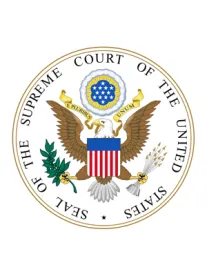On June 24, 2019, the Supreme Court issued its opinion in Food Marketing Institute v. Argus Leader Media, broadening the protection from disclosure under the Freedom of Information Act (FOIA) for confidential information provided by private parties to federal government agencies. This decision is a win for government contractors that are required to provide sensitive workforce and compensation data in connection with compliance audits, such as audits by the OFCCP and DCAA, and that provide confidential information to federal agencies as part of their contracting activities.
In the case, a grocery store trade association challenged lower court decisions compelling FOIA disclosure of information concerning food stamp purchases at the individual store level. The association claimed that the information was exempt from FOIA disclosure under FOIA’s Exemption 4, which prevents the disclosure of “trade secrets and commercial or financial information obtained from a person and privileged or confidential.” The association argued that its members closely guard their store sales information, which is important in modeling projected individual store sales and deciding where to open new locations. The lower court, applying prior authority, held that the association had not met an additional requirement under Exemption 4 to demonstrate that disclosure of the sales data would cause “substantial competitive harm.”
As reported in a prior blog, Polsinelli attended oral argument in the case on April 22, 2019. As predicted in that blog, a seven-member majority of the Supreme Court had little difficulty dispensing with the “substantial competitive harm” requirement, finding it unsupported in either Exemption 4’s text or the plain meaning of the word “confidential.”
The Court noted in its decision that there were two potential conditions to confidentiality: (1) that the information is kept private or closely held by the person providing it, and (2) that the person receiving it provides some assurance that the information will be kept secret. The Court noted it was uncontested that grocers met the first requirement by not sharing store-level sales data and providing access to the data only to small groups of employees. The Court did not resolve whether the second requirement, an assurance of confidentiality from the government, was necessary because it was also uncontested that the USDA consistently assured grocers that their data would be kept confidential. The level of government confidentiality assurances required, if any, remains an open question.
In situations like compliance audits, contractors sometimes do not have a choice whether to provide confidential information to the government. However, they can reduce the risk of disclosure of confidential information in response to a FOIA request by implementing best practices to safeguard their data. When disclosure is not compelled in an audit, contractors should carefully evaluate any confidentiality requirements in their contracts and negotiate, if possible, appropriate confidentiality assurances from the government to avoid running afoul of the unresolved potential second requirement for confidential treatment under Exemption 4.





 />i
/>i

